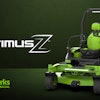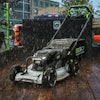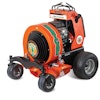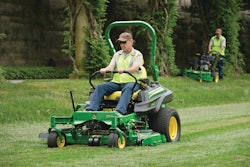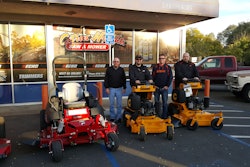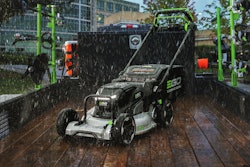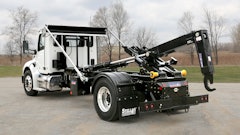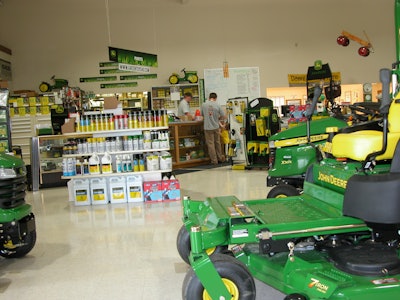
Figuring out how to effectively drive sales is always at the forefront of a business owner's mind. One thing is certain: A great sales effort starts with a great team operating your dealership. Then, once focused on creating a team culture of customer service, it is important to realize how generational differences can impact the selling process.
Millennials and baby boomers often differ in how they go about purchasing items. Thus, they may also differ in how they think they should go about selling and providing customer assistance in a retail setting. Retail consultant Bob Phibbs calls this the generation gap.
“The reality is that you have to train employees on how to engage in conversation with a stranger so they can gain that stranger's trust," Phibbs says. It has to be more than, "Oh, you can find that product over there on that wall or down that aisle."
"Some millennials don’t even like talking to people," Phibbs continues. "So if you don’t train, they’ll likely just bring that mindset into your store. They’d rather be on their smartphone, and customers become a distraction. It’s not like millennials are stupid; they’re very bright. But if you don’t train them, they’re going to bring all of their bad habits into your store.”
The generation gap
Baby boomers grew up when the retail industry still had people who chose working retail as a career. These career retail associates modeled exceptional customer service. Baby boomers also grew up minding their manners. Most had entry-level jobs where they were taught how to help customers in a friendly manner. As such, they expect to receive that same friendly treatment when they go out to a store today.
The millennial generation grew up with the internet. Efficient, fast and cheap were things that became increasingly important to these people as they conducted their lives online. Most did not have entry-level jobs, so the social skills necessary to engage a stranger were not developed, in many cases.
Balance is important here. Don't think that online sales can completely save you. According to Phibbs, 90% of sales are still done with human contact. "You can't just have a webpage that you put up 10 years ago and expect it to do the job," Phibbs says. "Here’s the rub: 75% of purchases will still come from baby boomers expecting personal service for the foreseeable future."
Unless your business is able to give baby boomers the customer service they expect, you’ll see less and less of them. If you take the time to learn what a customer's project is, you can better understand their needs, and in turn, provide the service and support they are looking for. That's the type of service that will ultimately lead the typical baby boomer customer back to your dealership again and again.
Proven tips to help millennials sell to boomers
Initiative. Don’t make baby boomers search you out. Boomers do not want to ask, “Can you help me?” or “Where do I pay?” Keep your head up and engage them regularly. And once a boomer is ready to leave, they’re ready to leave. Thank them and wish them a good day.
Hustle. Your speed of service has to be given in proportion to the amount of customers in your store. Your head must be up and looking at who just came in, who needs help and who needs to be rung up. If you ignore boomers, they’ll walk.
Being included. Boomers want to fit in. They want to be popular. They were the ones who wanted a trophy but someone else got it. Unlike the millennials, they are still looking for validation. For boomers, much of that validation comes from owning things.
If you don't train your employees on how to converse with boomers to find out their wants and needs, they can develop bad, McDonalds-like habits. For example, "Do you want fries with that" can be very off-putting. Employees should want to be helpful, but not over-bearing and robotic.
High-touch over high-tech. A millennial salesperson could show a virtual product, but a baby boomer wants to touch it. Boomers want to see it for themselves; that’s why they are in your store and not shopping online. They still want to feel, touch, smell and experience.
Use the right words. Avoid phrases such as “no problem” and the word "like". For example, "This blower is like the most powerful we have." Boomers in general are old-school and appreciate proper grammar and professionalism.
Connecting the dots. It is great to connect with customers and build rapport, but you have to go further with boomers. You need to connect the dots between what they want and what you have to sell. This is the generation that doesn’t like to return things; they want to get it right the first time. So take the time to ask questions, listen, and help them make the absolute right buying decision.
"It’s always tough to find good employees, and that isn’t going to change," Phibbs says, adding that if you see solid people working in other stores or businesses around town, don't be afraid to introduce yourself and give them your card. You never know when they might swing by your dealership to ask for an application.
Despite the job-hopping that’s occurring across the country, a millennial's commitment to his or her job is typically very high, Phibbs points out. "They’re looking to acquire new skillsets and experiences," he says. "Make sure you are training them so they can deliver a world-class customer experience."
ABOUT THE AUTHOR: Bob Phibbs is the CEO of The Retail Doctor. As a speaker, sales consultant and author of "The Retail Doctor’s Guide to Growing Your Business," Bob has helped thousands of businesses since 1994. With over 30 years’ experience beginning in the trenches of retail and extending to senior management positions, his presentations are designed to provide practical information in a fun and memorable format. For more information, visit RetailDoc.com.
